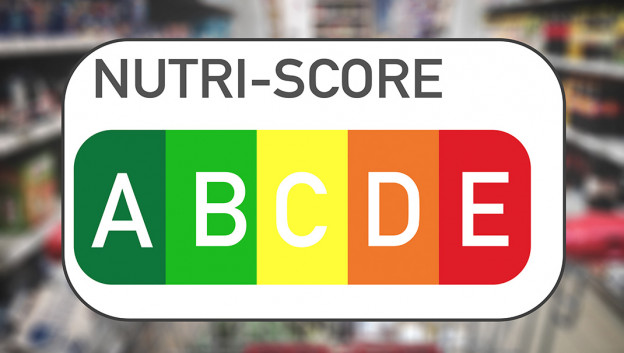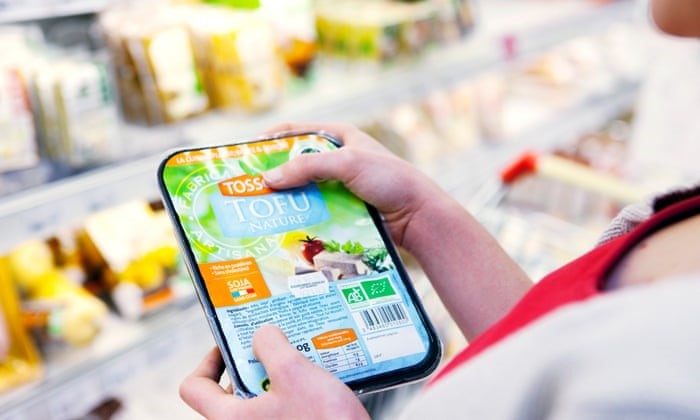Your browser is not supported, please use a recommended browser here.
6-30-2023
Phaff Export Marketing, SUSTA's consultant for the European market for over ten years, is compiling important and relevant news for a new, quarterly Agri-Newsletter to keep SUSTA participants up-to-date on relevant industry news in Europe.
Be careful with plastic disposable packaging: the new legislation applies from July 1, 2023
The Netherlands - From 1 July, entrepreneurs are no longer allowed to offer disposable plastic cups and trays for free. The consumer must pay extra for this, or they must bring refillable packaging. This is part of the European Single Use Plastics (SUP) directive.
To reduce plastic litter, the government says it is introducing measures to make reuse the new standard. These measures are part of the European Single Use Plastics (SUP) directive. “We want to leave the world in a good place for our children and grandchildren. These new rules will help with that, because it will save an enormous amount of waste and litter. We use way too many disposable cups and trays," says Vivianne Heijnen of the Ministry of Infrastructure and Water Management.
According to Heijnen, this can be done differently. “That is why we are committed to reuse. Everyone can contribute by bringing their own cup or container or by choosing a cup or container with a deposit on it and returning it. Let's work together to ensure that reuse becomes the standard.” To work towards this new standard, entrepreneurs are no longer allowed to offer free disposable cups and trays with plastic from 1 July.
From July 1, the following rules apply:
Consumers will therefore pay separately from 1 July for disposable cups and containers that contain plastic. This price is in addition to the price of the food or drink. Entrepreneurs can set the prices themselves, but the government recommends €0.25 for a cup, €0.50 for a meal and €0.05 for pre-packaged small portion packs. Apart from the above rules as of 1 July, the government wants reusable tableware to become the standard for on-site consumption from 1 January 2024. So reusable mugs at the office and reusable or high-quality recyclable cups and trays at festivals.
Nutri-Score is the new food choice logo in the Netherlands
Nutri-Score is legally designated as the food choice logo that Dutch manufacturers and supermarkets are allowed to use for their foodstuffs. Anyone who does their shopping can use this extra tool to make a healthier choice per product category. After careful consideration and review by the Health Council, State Secretary Maarten van Ooijen (VWS) hereby implements the agreement from the National Prevention Agreement to introduce a food choice logo.
Whole grain bread is usually an A
Nutri-Score is originally a French system that is already used in several European countries (France, Germany, Belgium, Switzerland, and Luxembourg). In recent years, the Nutri-Score calculation method has been scientifically scrutinized at the request of the Netherlands. This has led to an international revision of the calculation method of the logo, making it better suited to the Dutch situation. For example, the new method greatly improves the distinction between whole grain bread and white bread because whole grain bread usually gets an A and white bread mainly gets a C. Frozen pizzas usually do not score higher than a C with the revised algorithm.
Further improvement remains necessary
Nutri-Score has been improved, but further development and improvement will remain necessary in the future, because the logo is not perfect, as the Health Council also states. State Secretary Van Ooijen supports the recommendations made by the Health Council for further improvement and will include them in the discussions in the international Nutri-Score steering committee. New scientific insights about nutrition will be followed to further improve the calculation method.
Wheel of Five remains the healthiest advice
Van Ooijen: “We should really see Nutri-Score as something extra that we can all use in the supermarket. Eating as much as possible within the Wheel of Five remains the healthiest advice for everyone. In addition, the Nutri-Score offers an extra handle to make the better choice, for example for products that are not in the Wheel of Five. In a very simple way with colors and letters that we all recognize by now. In short: frozen pizza every day is not healthy. But if you do eat it once, Nutri-Score can help you find the pizza with the better composition.”
The Netherlands will immediately introduce the improved algorithm
Nutri-Score is a voluntary logo. Manufacturers and supermarkets in the Netherlands may officially use Nutri-Score with the revised algorithm from January 1, 2024. The assessment of trade associations CBL and FNLI is that supermarkets and food manufacturers who want to get started with Nutri-Score will need until mid-2024 to put the logo on their products. Dutch products that already have a Nutri-Score as part of a test run must be adjusted to the new calculation method from 1 July 2024.
Legislation and communication
The regulations required to use Nutri-Score will be published shortly. For consumers, we are working with supermarkets and food manufacturers, among others, on communication about how Nutri-Score can help with healthier shopping, in stores and online.


European Commission proposal: “Country of origin must be stated on the label of sliced fruit and vegetables”
On Friday 21 April, the European Commission proposed a revision of the marketing standards for a number of food products, such as fruit and vegetables. This should help consumers to make better-informed choices for a healthier diet, and also prevent food waste.
The European Commission has made the following proposals, among others:
Origin labeling: Clearer, mandatory origin labeling for honey, nuts, and dried fruits, ripened bananas, and processed and sliced fruits and vegetables. The country of origin must be indicated on the label.
Food waste: Fruit and vegetables with external defects but still fit for consumption and sold locally and directly by producers to consumers should be exempted from the obligation to comply with marketing standards.
Packaging: Products intended for donation can be exempted from the main labeling rules.
Fruit juices: Fruit juices may be labeled with 'no added sugars' to clarify that fruit juices, unlike fruit nectars, by definition cannot contain added sugars. In addition, the label of fruit juice with an adapted formula should be allowed to state 'fruit juice with a reduced sugar content'. In addition to 'coconut juice', the term 'coconut water' may also be used.
The European Commission's proposals for fresh fruit and vegetables fall under delegated and implementing acts. The texts will be available for public feedback for one month. They will then be adopted and sent to the European Parliament and the Council of Ministers for a review period of 2 months. The European Commission will publish them at the end of that procedure.
At the same time, the European Commission is submitting a report to the European Parliament and the European Council with a view to establishing new marketing standards for cider and perry and for the origin labeling of legumes, which should take place shortly. Those products are currently not covered by the marketing standards in the Regulation of the European Common Market Organization.


Source: https://ec.europa.eu/commission/presscorner/detail/nl/ip_23_2366
EU Consumers save on food and buy less organic in 2022
The COVID-19 pandemic was an important driver that boosted organic sales. Starting in 2020, consumers changed their food purchasing and consumption habits during periods of “lockdown” when restaurants were closed, and home cooking became the norm. The situation changed in 2022 with the knock-on effects of the Russian invasion of Ukraine which substantially impacted the economies of in EU member states. Trade disruptions and surging inflation driven by energy costs and food prices affected every consumer. To save money, many consumers opted to buy cheaper food products.


Spanish Tax on Non-Reusable Plastic Packaging Entered into Force
As of January 1, 2023, Spain implemented a special tax on non-reusable plastic packaging that also applies to imported food products. For imports, payment of the tax is the responsibility of the importer, although third-country manufacturers must provide their Spanish buyers with information regarding the amount of non-recyclable plastic packaging used in their products’ packaging.
Law 7/2022 law aims at reducing the impact of certain plastic products on the environment. Among the fiscal measures to promote a circular economy, this law introduces a special tax on non-reusable plastic packaging that entered into force on January 1, 2023. Detailed information on the implementation of this tax is located on the Spanish Treasury Website (Spanish language only).
The Spanish tax on single-use plastics includes the manufacture, import, or intra-community acquisition of single-use plastic containers. It includes all non-reusable containers containing plastic or their non-reusable portion of plastic packaging. The tax applies throughout the entire Spanish territory.
Potential Trade Impacts
Sustainable packaging regulations are being rapidly implemented in the EU and have the potential to impact U.S. agricultural trade. EU and Member States’ regulatory proposals can affect U.S. exports of consumer-oriented products to the EU, especially those using plastic in their packaging. At this time, Spain is the only Member State in which a tax like this has been implemented. Exporters should work with their importing partners to verify the full set of import requirements, who are normally best equipped to confirm requirements with local authorities before any goods are shipped.